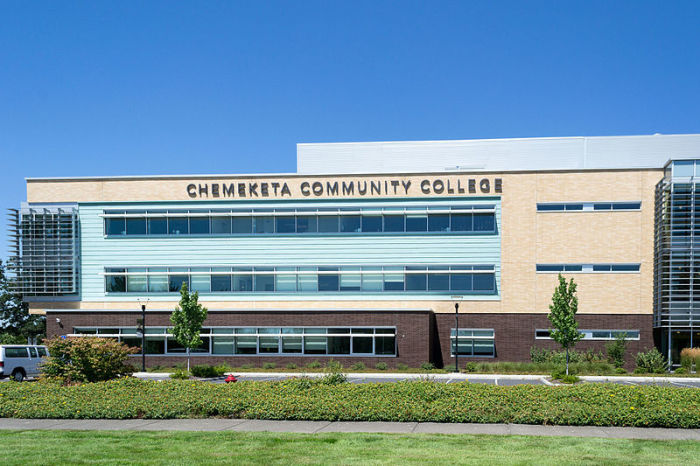Oregon college agrees to revise free speech policies, pay $25K after pro-life group sues

Oregon’s Chemeketa Community College has settled a federal lawsuit with a pro-life student group by agreeing to pay $25,000 to cover the cost of legal fees and end a policy confining free speech to a small area of campus.
The Alliance Defending Freedom, the legal group representing the Chemeketa Students for Life, announced the settlement last Friday.
Before the settlement, which is dated Nov. 10, the college limited outdoor free speech in two small areas of campus. According to the legal group, the tax-payer funded school’s policies restricted the free speech rights of students to just 1.5% of the school’s 100-acre campus.
Under the policy, students were required to give the institution two weeks’ notice before speaking in the allotted areas. The school could also halt a free speech activity after hearing what the events are about.
According to the lawsuit, the policy prevented students from engaging in informal conversations about their pro-life beliefs as the opportunities arise in the outdoor areas of the College’s campus.
“The only permit students need to speak on campus is the First Amendment,” said ADF Legal Counsel Michael Ross in a statement. “Chemeketa Community College’s previous policy placed a restriction on these fundamental freedoms by confining students to so-called ‘speech zones’ and requiring reservations weeks in advance. Thankfully, Chemeketa has agreed to revise these unconstitutional policies and help ensure that all students can engage in free expression on campus.”
This is not the first time the institution has altered its free speech policies when faced with legal action.
In 2012, the college revised its policies after ADF pressured the school in response to pro-life students being prevented from handing out pamphlets outside of a six-foot table used as a “free speech zone.”
According to the November settlement, the school was forced to revise its free speech guidelines within 14 days of the settlement.
Students now can need to fill out a form to host an indoor free speech event or an outdoor speech event larger than 400 people. They are guaranteed the right to two days for indoor activism in each term with additional dates being subject to availability.
However, students still cannot draw on sidewalks with chalk.
Across the United States, colleges have become the subject of First Amendment legal battles.
A recent study from the Foundation for Individual Rights in Education found that 88% of college campuses restrict free speech in some way. A study from 2016 found that Democrats outnumber Republicans at universities 11.5 to one. As of 2019, at least 17 U.S. states have laws to protect freedom of speech on campus, according to Inside Higher Ed.
“Across the nation, we are seeing incredible opposition to the pro-life speech of our student leaders and volunteers as they speak for the defenseless and educate their fellow students on abortion,” said Students for Life of America President Kristan Hawkins in a statement.
“But the law and the Constitution are clear on the matter: Public schools cannot silence pro-life groups or force them to self-censor. We are thankful that Chemeketa Community College clarified that Students for Life — and all students — can participate in the open exchange of ideas and ensure that the entire college community is a ‘free speech zone’ for pro-life students and their peers.”
Although the agreement between the school and Students for Life ends the legal conflict, it does not conclusively decide the legal question.
“This Agreement in no way shall be construed as an admission by Defendants that they acted wrongfully toward or failed to act lawfully with regard to Plaintiffs,” the settlement reads.
The American Civil Liberties Union, a progressive civil rights organization, has also criticized free speech zones.
“While it may sound like these zones are designed to promote speech, they actually do the opposite by confining political expression to designated areas, often in out-of-the-way locations on campus,” ACLU staff attorneys Emerson Sykes and Vera Eidelman wrote in a 2019 post on the ACLU website.
In 2019, President Donald Trump signed an executive order to withhold federal research grants to colleges and universities that have policies that are hostile to free speech. Last September, the Department of Education issued a final rule following Trump's order.




























